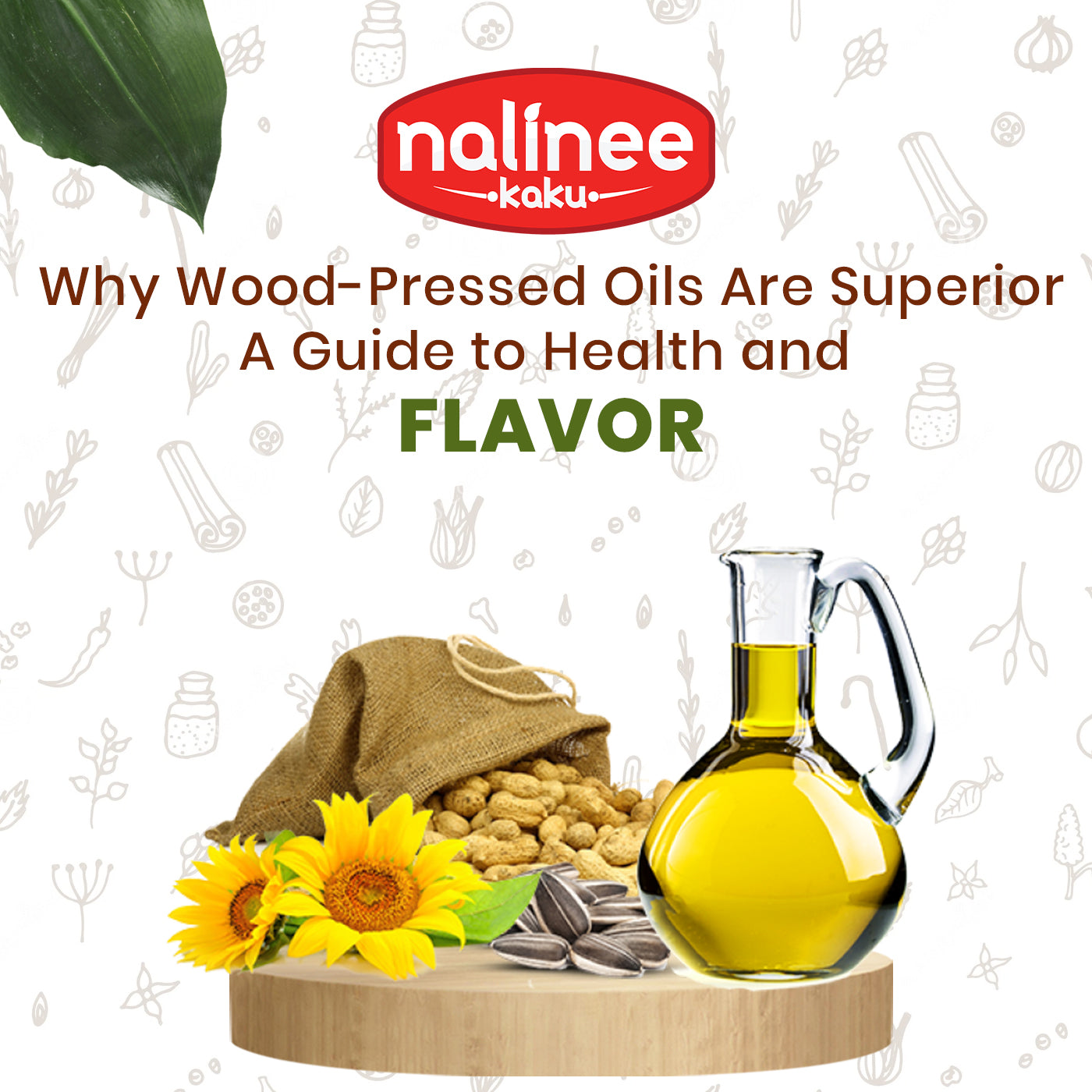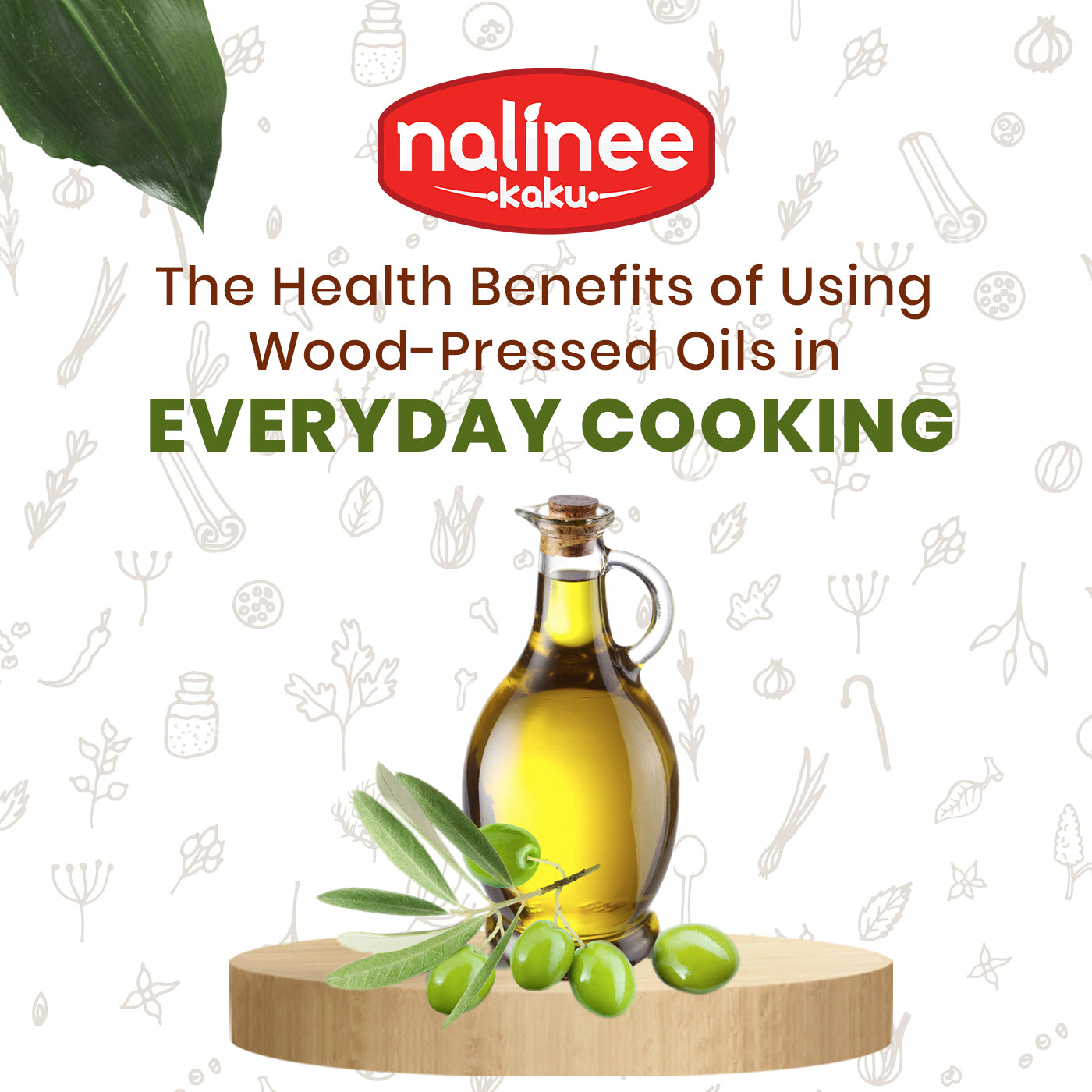Why Wood-Pressed Oils Are Superior: A Guide to Health and Flavor

Introduction
In the world of cooking oils, wood-pressed oils are making a comeback as a superior choice for health-conscious individuals. Known for their rich flavor and nutritional benefits, these oils stand out in a crowded market of modern, refined alternatives. This blog explores why wood-pressed oils are considered superior, delving into their extraction process, health benefits, and how they enhance the flavor of your dishes.
Understanding Wood-Pressed Oils
a. The Traditional Extraction Process
Wood-pressed oils are extracted using traditional methods involving wooden millstones. This gentle process preserves the natural flavors and nutrients of the oilseeds. Unlike modern methods that use high heat and chemical solvents, wood-pressing maintains the integrity of the oil, ensuring that it remains pure and unadulterated.
b. Types of Wood-Pressed Oils
Various wood-pressed oils, such as sesame, groundnut, and coconut oil, offer distinct flavors and health benefits. Each oil has its unique profile, making it suitable for different culinary applications.
Health Benefits of Wood-Pressed Oils
a. Nutrient Preservation
One of the primary advantages of wood-pressed oils is their ability to retain essential nutrients. For instance, cold-pressed olive oil retains more polyphenols and vitamin E compared to refined olive oil. These nutrients contribute to overall health and well-being.
b. Heart Health
Wood-pressed oils like olive oil are rich in monounsaturated fats, which are known to support heart health. These healthy fats help lower bad cholesterol levels and reduce the risk of cardiovascular diseases.
c. Digestive Health
Certain wood-pressed oils, such as castor oil, have been used traditionally to support digestive health. The mild laxative effect of castor oil can help alleviate constipation and promote regular bowel movements.
Enhancing Flavor with Wood-Pressed Oils
a. Rich, Natural Flavor
Wood-pressed oils offer a rich, natural flavor that enhances the taste of dishes. For example, sesame oil adds a distinct nutty flavor to Asian cuisine, while coconut oil provides a subtle sweetness to baked goods.
b. Versatility in Cooking
Wood-pressed oils are versatile and can be used in various cooking methods, including sautéing, frying, and baking. Their ability to withstand heat and retain flavor makes them a valuable ingredient in diverse culinary applications.
c. Complementing Traditional Recipes
Many traditional recipes from around the world call for wood-pressed oils. Incorporating these oils into your cooking not only honors culinary traditions but also adds a layer of authenticity and depth to your dishes.
Comparing Wood-Pressed Oils to Refined Oils
a. Nutritional Differences
Refined oils undergo extensive processing that removes many of their natural nutrients. In contrast, wood-pressed oils retain their original nutrients, offering a healthier option for cooking and consumption.
b. Flavor Profile
Refined oils often have a neutral flavor, which can be less desirable in recipes that benefit from the distinct taste of wood-pressed oils. The rich, natural flavors of wood-pressed oils enhance the overall taste of dishes.
c. Environmental Impact
The production of wood-pressed oils is generally more environmentally friendly compared to refined oils. The traditional process requires less energy and fewer chemicals, making it a more sustainable choice.
Practical Tips for Using Wood-Pressed Oils
a. Selecting the Right Oil
Choose the appropriate wood-pressed oil based on its flavor and cooking properties. For example, use sesame oil for Asian dishes and coconut oil for baking.
b. Storage and Shelf Life
Store wood-pressed oils in a cool, dark place to maintain their freshness and prevent oxidation. Proper storage helps extend the shelf life and preserves the oil’s quality.
c. Incorporating into Your Diet
Incorporate wood-pressed oils into your daily meals by replacing refined oils in your recipes. Experiment with different oils to discover new flavors and health benefits.
Real-Life Examples
a. Traditional Cuisines
Many traditional cuisines, such as Indian and Mediterranean, have long relied on wood-pressed oils for their unique flavors and health benefits. These oils continue to play a significant role in these culinary traditions.
b. Modern Usage
Health-conscious individuals and chefs are increasingly turning to wood-pressed oils for their superior quality and benefits. Their experiences highlight the positive impact of using these oils in contemporary cooking.
Conclusion
Wood-pressed oils offer a superior alternative to modern refined oils, providing both health benefits and enhanced flavor. By incorporating these traditional oils into your cooking, you can enjoy their rich taste and nutritional advantages while supporting a more sustainable approach to oil production.



